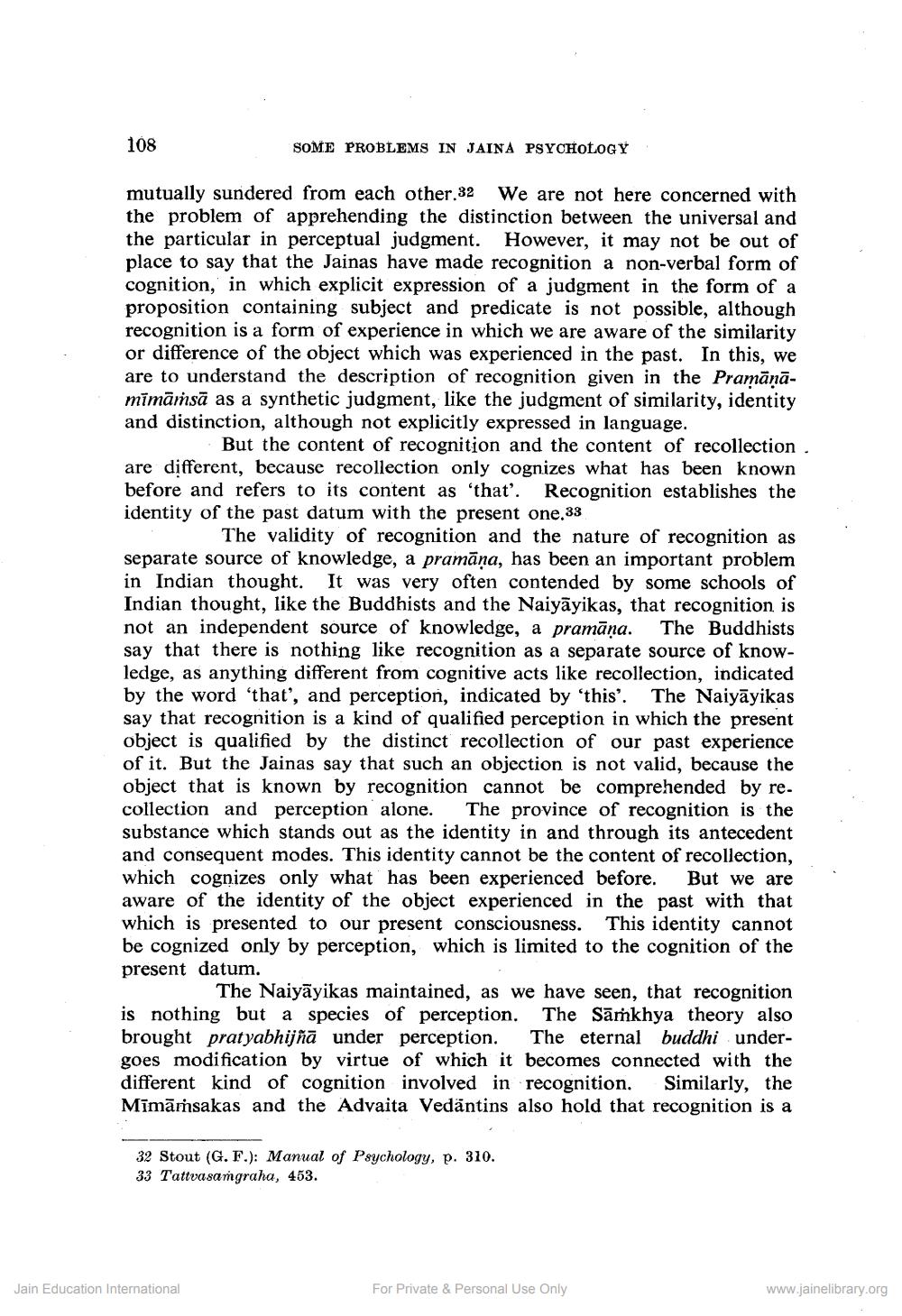________________
108
SOME PROBLEMS IN JAINA PSYCHOLOGY
mutually sundered from each other. 32 We are not here concerned with the problem of apprehending the distinction between the universal and the particular in perceptual judgment. However, it may not be out of place to say that the Jainas have made recognition a non-verbal form of cognition, in which explicit expression of a judgment in the form of a proposition containing subject and predicate is not possible, although recognition is a form of experience in which we are aware of the similarity or difference of the object which was experienced in the past. In this, we are to understand the description of recognition given in the Pramānāmīmārsā as a synthetic judgment, like the judgment of similarity, identity and distinction, although not explicitly expressed in language.
But the content of recognition and the content of recollection are different, because recollection only cognizes what has been known before and refers to its content as 'that. Recognition establishes the identity of the past datum with the present one. 33
The validity of recognition and the nature of recognition as separate source of knowledge, a pramāṇa, has been an important problem in Indian thought. It was very often contended by some schools of Indian thought, like the Buddhists and the Naiyāyikas, that recognition is not an independent source of knowledge, a pramāņa. The Buddhists say that there is nothing like recognition as a separate source of knowledge, as anything different from cognitive acts like recollection, indicated by the word 'that', and perception, indicated by this'. The Naiyāyikas say that recognition is a kind of qualified perception in which the present object is qualified by the distinct recollection of our past experience of it. But the Jainas say that such an objection is not valid, because the object that is known by recognition cannot be comprehended by re. collection and perception alone. The province of recognition is the substance which stands out as the identity in and through its antecedent and consequent modes. This identity cannot be the content of recollection, which cognizes only what has been experienced before. But we are aware of the identity of the object experienced in the past with that which is presented to our present consciousness. This identity cannot be cognized only by perception, which is limited to the cognition of the present datum.
The Naiyāyikas maintained, as we have seen, that recognition is nothing but a species of perception. The Sāṁkhya theory also brought pratyabhijñā under perception. The eternal buddhi undergoes modification by virtue of which it becomes connected with the different kind of cognition involved in recognition. Similarly, the Mīmārsakas and the Advaita Vedäntins also hold that recognition is a
32 Stout (G. F.): Manual of Psychology, p. 310. 33 Tattvasangraha, 453.
Jain Education International
For Private & Personal Use Only
www.jainelibrary.org




